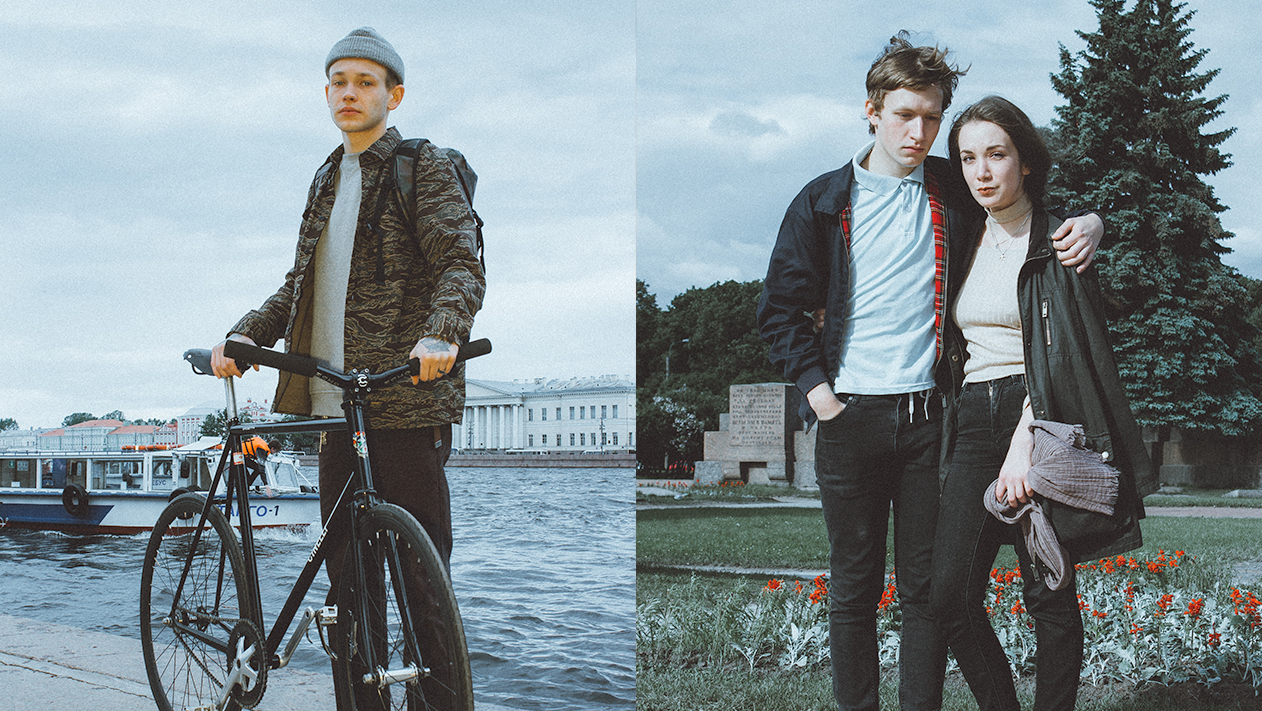This article was originally published by i-D UK.
This year, Russia Day — celebrated on June 12 — was supposed to be marked with a series of patriotic marches, but instead it exposed the generational divisions in the country’s politics.
Nationwide anti-corruption protests made political headlines across the world, largely because of the visible presence of the country’s millennials on the streets. But what was the reason for Russia’s young generation — often lazily considered apathetic or oppressed into fear — to finally hit the streets?
The numbers who joined the marches were staggering — considering joining a protest in Putin’s Russia is not a decision to be made lightly. Since 2004 all marches, rallies, and demonstrations have to be sanctioned by the authorities — and the ones that aren’t get cleared out by police officers. Even the marches that get authorized are often cracked down on and mass arrests — often brutal — are a sad reality. Being detained usually means paying a fine of 10,500 roubles (around $174) and spending up to 14 days in prison. The risks don’t end there, though. You could be fired from your job or expelled from university — and having a criminal record in your teens seriously jeopardizes your future career opportunities. However, all of this today seems to be a tiny price to pay for fighting for a larger freedom.
The rise of political awareness with Russian youth could be read as part of the global political awakening. Youth in US and UK are also facing a grim future brought about by conservatives and reactionaries and they are making their voices heard.
At the same time, this is the culmination of years of discontent that has been growing for a long time. There’s corruption on all levels of the state system, a decreasing quality of life, and a constant feeling of being cheated by the system.
But the rise of the opposition leader Alexey Navalny, known for his investigation into the corruption of Putin’s regime, has given hope to a lot of young people joining the movement. Above all, Russia’s youth understands that the state’s propaganda couldn’t be further from the truth, and that the people at the top are completely out of touch with reality and that the values of the government — often hateful and discriminatory — are not the ones they want to stand for.
Seeking the answer to the question of what drives young Russians to the streets, i-D talked to young people in St. Petersburg.
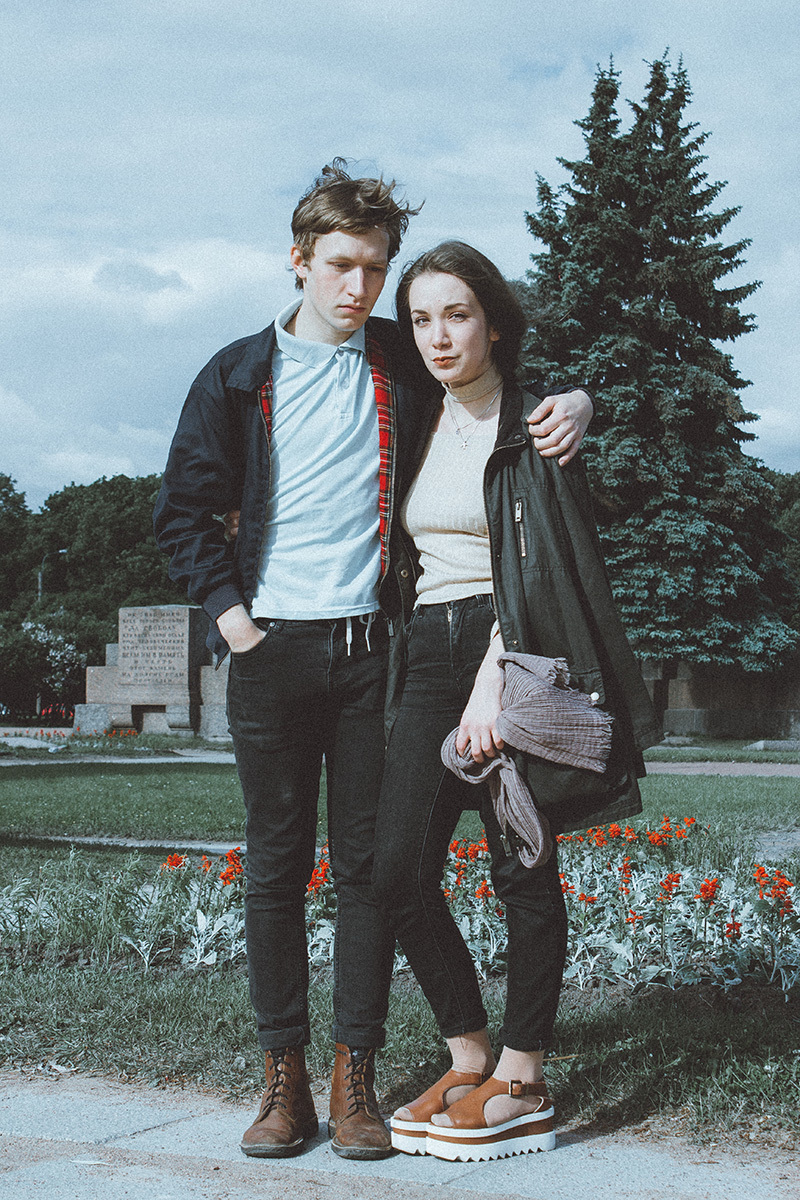
Lisa, 20, and Sasha, 21
Lisa: We went to a protest for the first time this year. We follow Alexey Navalny and we are really happy that we finally see some kind of active opposition. Young people used to think that politics was boring and not relevant to their lives. Putin and Medvedev feel like a part of something old and boring, but Navalny and his team talk to young people in their language and are really relatable. I think we all feel it could be better in Russia, and we want it to get better. There was never any hope for change and now it has finally appeared, however small.
Sasha: The protest on March 26 was quite peaceful, it was a parade of memes with a lot of people of all ages. The vibes on June 12 were completely different: anyone with posters would have them taken away immediately, and it seemed that as soon as police saw a teenager, they’d try and grab him or her. I feel like the government doesn’t care about the people. The bills and taxes are very high, and people have a really poor quality of life. At least we’re lucky to live in St. Petersburg — people in small towns have it even worse.
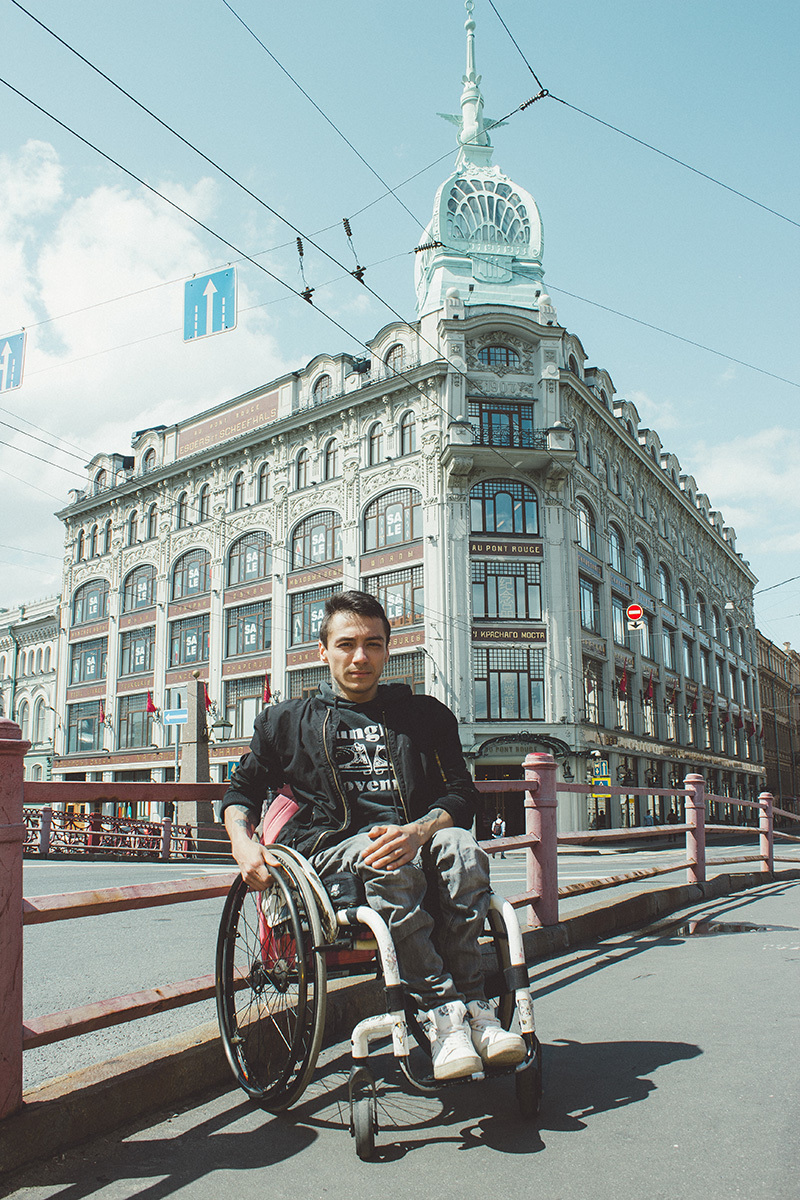
Iskander Vakhidov, 24
In our country it’s normal not to talk about politics — or even think about it. I think going out to the street is the only way to influence the people in power and change something. The government is just systematically fighting people now, trying to make us afraid and take away the last of our constitutional rights. There were tens of thousands of people at the protest on March 26, it felt great. This is the only way to show that the governmental system is not working. Nothing ever changed from people just sitting at home and being silent. The president couldn’t care less about the constitution and our rights, he only cares about his own megalomaniac idea of grandeur. Everyone is tired of lies and corruption. Nothing in this country is designed to make life easier — only harder. I had to go through enormous struggles to attend university. Most of my classes were at the top floors with no disabled access — and I went every single day. When I graduated, I realized that I couldn’t get a job. The law doesn’t help disabled people in wheelchairs to get a job, they actually make it harder! I could have worked for one of the country’s largest companies but no one will hire me because they’re afraid of inspections.
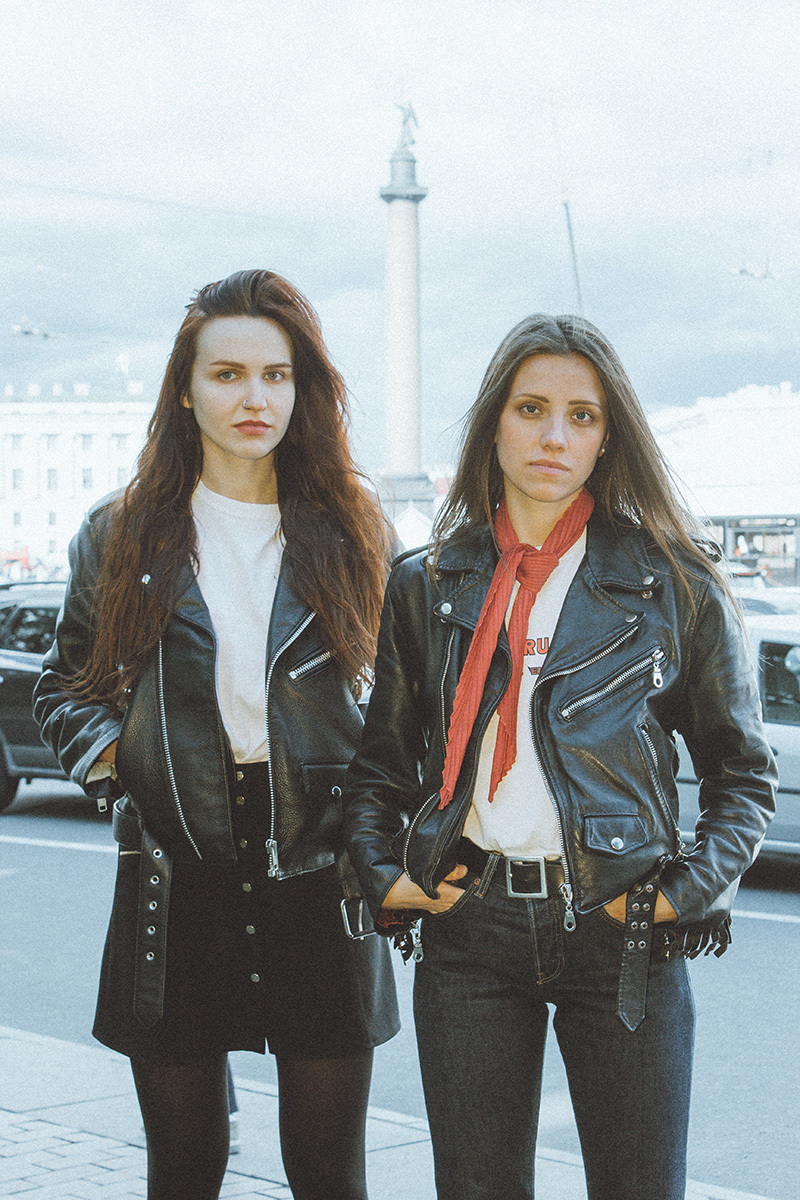
Lolja Nordic, 28, and Olga Shapovalova, 29
Lolja: After the protest movement at Moscow’s Bolotnaya Square between 2011 and 2013, things quietened down because a lot of people were arrested and went to prison. Then this year people finally started to get involved in politics again. Bolotnaya now seems far away and long ago, and we have no fear. We’ve been participating in feminist demonstrations for a few years, now. On March 8 every year we go to a feminist rally, and at the demonstration there is always a feminist group. This year, the arrests were particularly harsh. Like never before. Maybe because this time it was because the demonstration wasn’t approved by the authorities. They would immediately take away anyone who would start chanting or take out banners or signs. We hid our banner, but I’d bought some red roses, so we walked the entire way with roses clutched in our raised fists. They couldn’t really arrest us for that.
Olga: In the last 15 years Putin’s generation has grown up; a generation who hasn’t known any other president. This generation has always lived very well, their adolescence happened during a prosperous time, when the oil prices were high, when the shops were full and life was relatively comfortable. Now we’re facing more and more restrictions, everything is getting more expensive but the salaries stay the same. Social support is almost non-existent. We’re aware our generation is being robbed by the state. At one of the recent pro-LGBT and feminist protests, as the police tried to drag away a couple of guys, I was thinking, “What could I do?” There was a police officer just in front of me, and I started to stroke his butt. There were a lot of people, and at some point he turned around trying to figure out what was happening and there was fear and confusion in his eyes.
This made me think that we have to make the police start to fear us. We fear them, but they are there to serve and protect us. They are not there to beat us up and scare us. At the protests I think we have to act together, not just film stuff on our phones, we have to care for each other, have solidarity. Even going to protest is not enough anymore, we have to educate people around us.
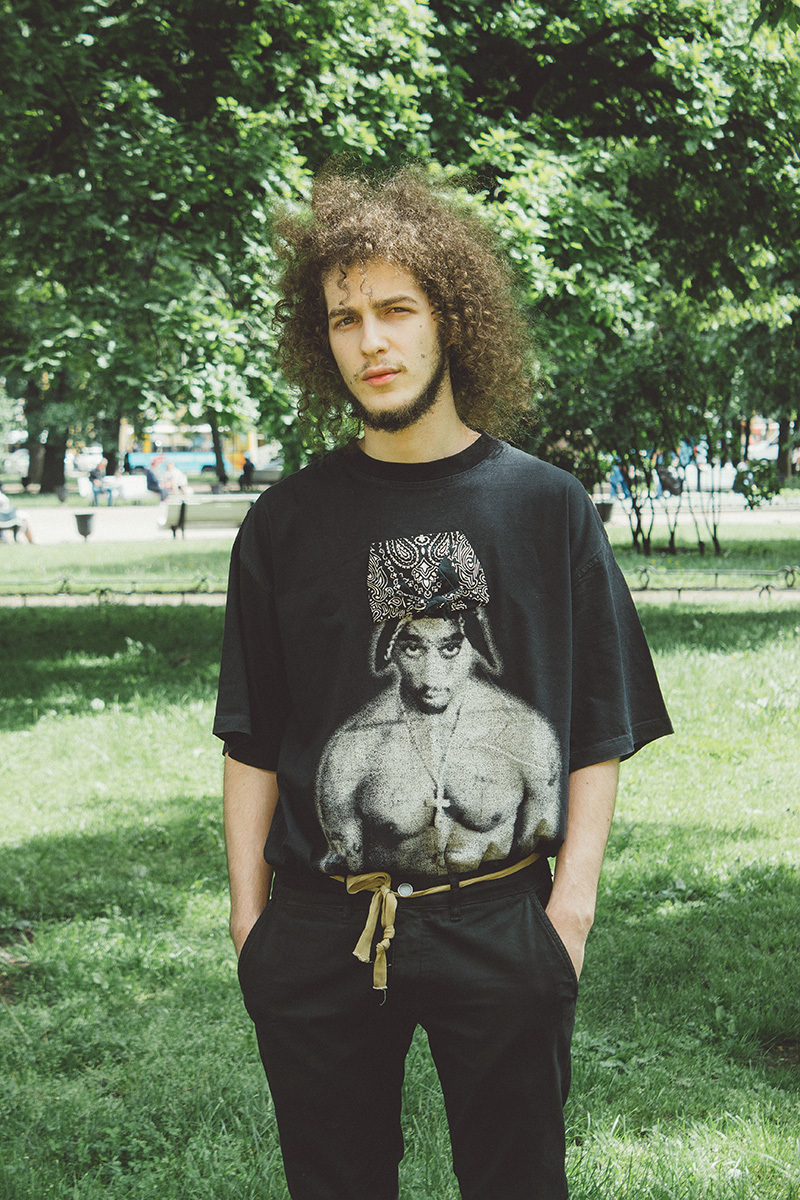
Paul Esipovich, 20
I started thinking about politics at 18, when I had to vote for the first time. What made me really angry recently is the new stadium built in the city for the 2018 World Cup, and how much money was stolen during its construction. Putin’s governmental machine is corrupt on every level. People in the government clearly don’t work in the interests of the country. I think more and more young people are involved in politics thanks to Alexei Navalny. He is the first politician in Russia who works through YouTube; his videos go viral. I think we’re also getting more involved because of the open access to information. At the protests on June 12 I was arrested and taken to a police station in the suburbs of the city because all the central ones were full. I had to wait for a trial for 24 hours and got fined.

Varvara Mikhnova, 24
I get asked a lot why I go to protests. In Russia, staying at home is normal. Not going to a protest is normal. If you go, you have to explain and justify it. We might not know to how to change the system yet, but we have to start somewhere and show people that they can be active in the political process. When you go out to the protest there is a great sense of unity, you see you are not alone, and together we might be able to do something. I think young people are definitely more involved in in politics now. Navalny managed to really shake up the youth. When I was at school I wasn’t as interested and informed as the teenagers today. Navalny has chosen the right channels — social media and YouTube — to reach the youth. He also talks about serious matter in simple very accessible language. In an ideal situation, I would like to change the whole of the stagnant political system.
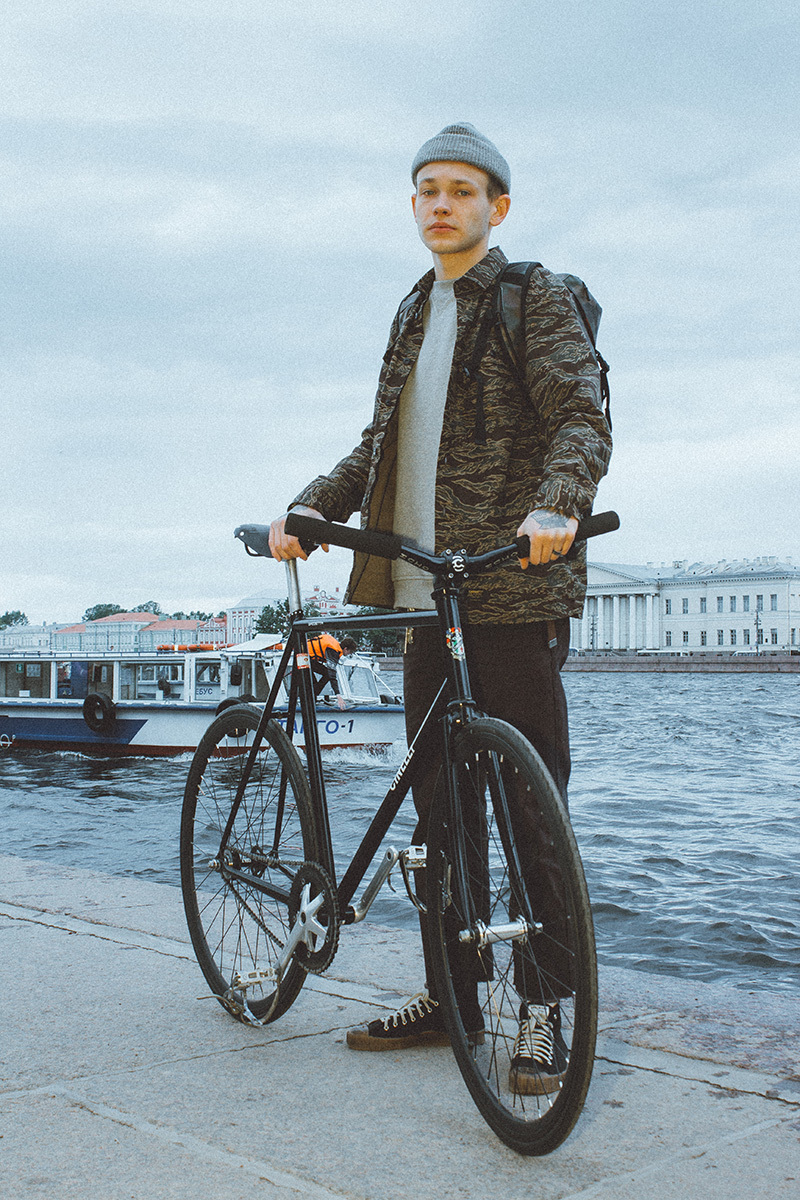
Danila Gavrin, 26
I hate corruption in our country. The government works for its own profit, and not in the interest of people. I’m tired of seeing the vestiges of the Soviet society and its values. I’m tired of seeing elderly people in the shops who worked for the state for their whole lives and now they have to count pennies to buy bread. I’m tired that in our country no one is sticking to their promises.
I went to the protest on June 12. The police say it was just 900, but I’d say there was 5000 at least. I was arrested, and spent a night and a day at the police station in quite horrible conditions, sleeping on a bench. I got sentenced to five days in prison and fined 10,000 roubles ($166). There was a guy aged around 20 who was detained with me. He got 10 days. He was a French citizen, some random guy who was just passing by and didn’t even participate in the protest.
Credits
Text Anastasiia Fedorova
Photography Dima Komarov
